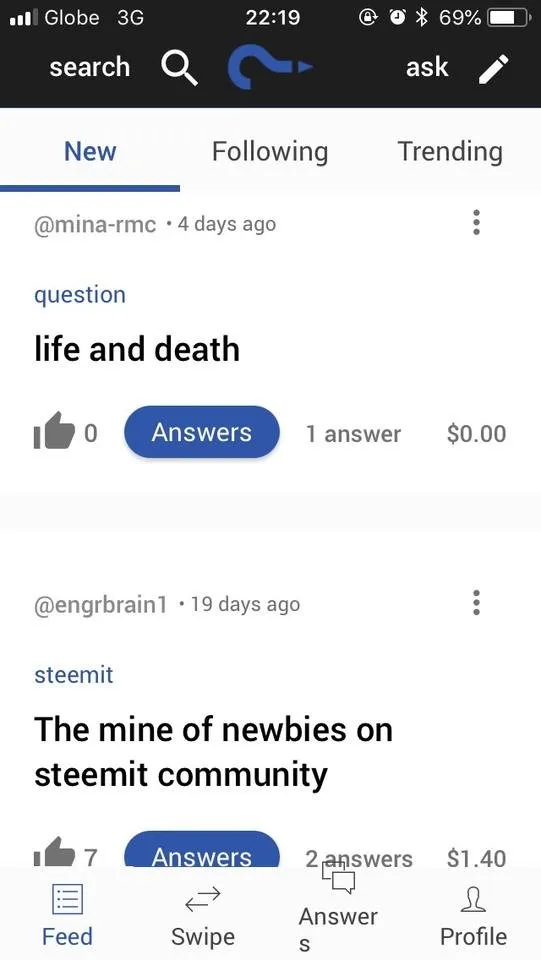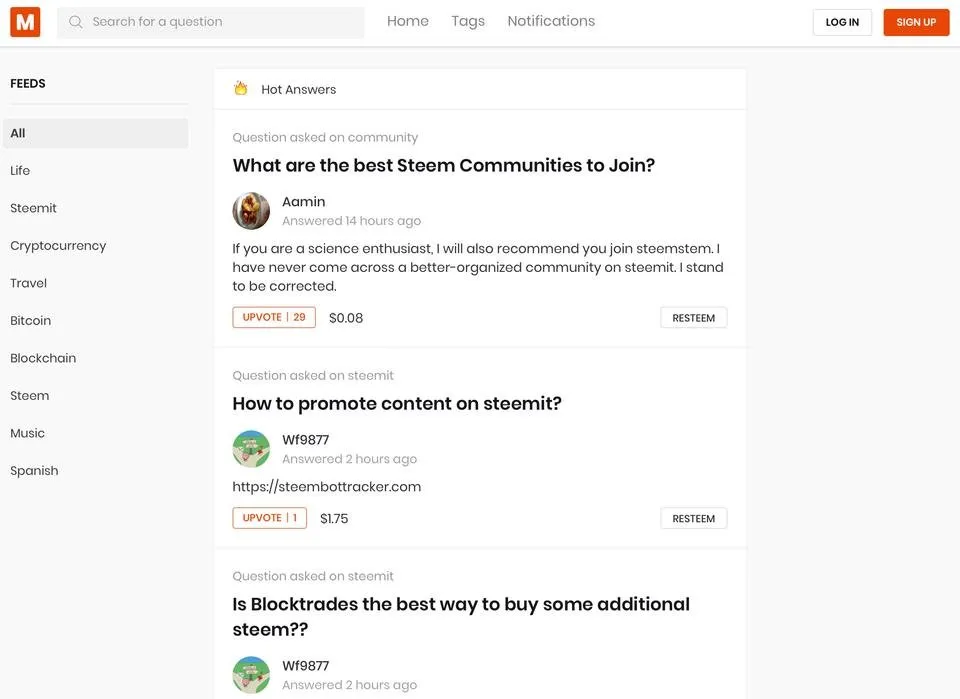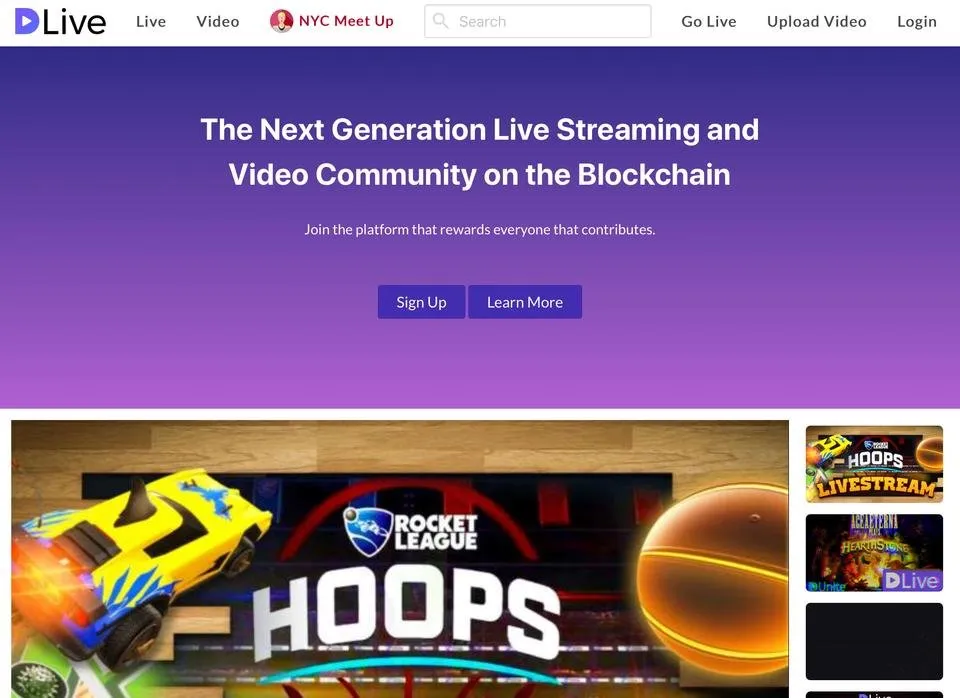I’ve long been a fan of the ecosystem which is developing on the Steem blockchain, even before the release of SMTs and often have been on the lookout for new applications built on top of the Steem blockchain. In fact, I’ve even regularly covered the launch of new Steem apps, whether by a resteem or by actually writing about them.
The possibility to build apps on top of the Steem blockchain is undoubtedly one of the most interesting elements of the Steem blockchain, the ability to rebuild a whole new internet.

Recently, after an extended time without consistent Steem presence, I revisited the What Q&A, the first Question and Answer app launched on the decentralized Steem blockchain. The [first decentralized Quora alternative].
The app wasn’t perfect but it was definitely a valid effort and had lots of potential, also first-mover advantage.

What Q&A turned ghost town
But there was one small problem with @what-app: the app operators had bootstrapped everything and didn’t have lots of Steem Power to reward its early users with for asking and replying to questions. When recently revisiting the app it had become ghost town.
Since the Steem blockchain has been expanded with the newly launched Musing Q&A platform and Steem isn’t left with QA, possibly one of the most interviewing and interesting verticals to build out on the Steem blockchain due to the historic popularity of question and answers, also on the Internet (Yahoo Answers, Quora, Mahalo... Google Search box).
But there is a little problem with Musing in this Steem world: the main @musing account doesn’t have any Steem Power of any significance.

One of the most popular launches we’ve seen on the Steem blockchain was @utopian-io. It’s founder, @elear immediately understood the need of rewarding projects, and also its posters and a bot rewarding Utopian submitters was soon launched. Developer of the popular eSteem mobile apps, @good-karma, has for the longest time rewarded app users with some autovotes, autovotes which at times of overvalued SBD creeped as high as USD2 simply for using the app t submit posts or comments the Steem blockchain.
Busy, the popular alternative to the Steemit.com website, operates a loyalty bot which upvotes one post every 12 hour window when users also tag their content with the #busy tag. Rewards vary based on the combined Steem Power held by one’s followers.
More recently several apps have received larger delegations from Steemit Inc., via the account @mrdelegation. These delegations help the platform operator to reward their users with often automated bot votes, as well as to apply manual curation. Sometimes the app operators also use the delegation to upvote their own announcement posts, which can help them fund development without needing to constantly downpower their (from curation) earned Steem Power.
Some of the most popular Steem apps benefitting these rather delegations from Steemit Inc. are @utopian-io, @dtube, @dlive, and @busy.org.

Of course, Steemit Inc.’s delegation is very helpful and also a great move when it comes to creating and improving user retention. Platforms such as DLive and dtube definitely grew much faster thanks to that delegation.
But has it created an unequal world and made things more difficult for other developers?
Recently two apps have lost their delegation, @zappl and @dmania. While I have no numbers about how that has impacted their growth, let’s not beat around the bush: on the Steem blockchain there is a high sense of rewards entitlement from many users.
As the population of the Steem blockchain is growing, we are going to continue to see always more posts about how to maximize revenue and ROI. There are already several discord communities which are promoted with the pitch that they share how to maximize, where to post for best return and who are the best comment upvoters, etc. etc.
One of the other Steem-apps which has massive potential is the ProductHunt alternative @SteemHunt. After some weeks of operation, SteemHunt made a call for SP delegations as they reward the top 20 (I think) hunters every day, as well as upvote great comments. Soon after SteemHunt had 25k SP and its vote for the top ranked daily hunt increased to around $TU 5.

Thanks to an awesome airdrop announcement program, the SteemHunt team has managed to almost double its SP in less than 24 hours. Of course, this is the best call possible to grow its user base: higher and/or more upvotes by the project.
Obviously, on a platform like SteemHunt it is common to see the same users over and over, every day with several submissions making an awesome earning when looking at their total revenue from the upbot. This is not a criticism, this the result of how the Steem blockchain works and its community was baited with the promise for rewards. It happens on every Steem platform which has a larger stake of Steem Power.
But how does an app survive and continue its development if not granted a large Steem Power delegation?
Do Steem apps live or die by the Steem Power they hold?